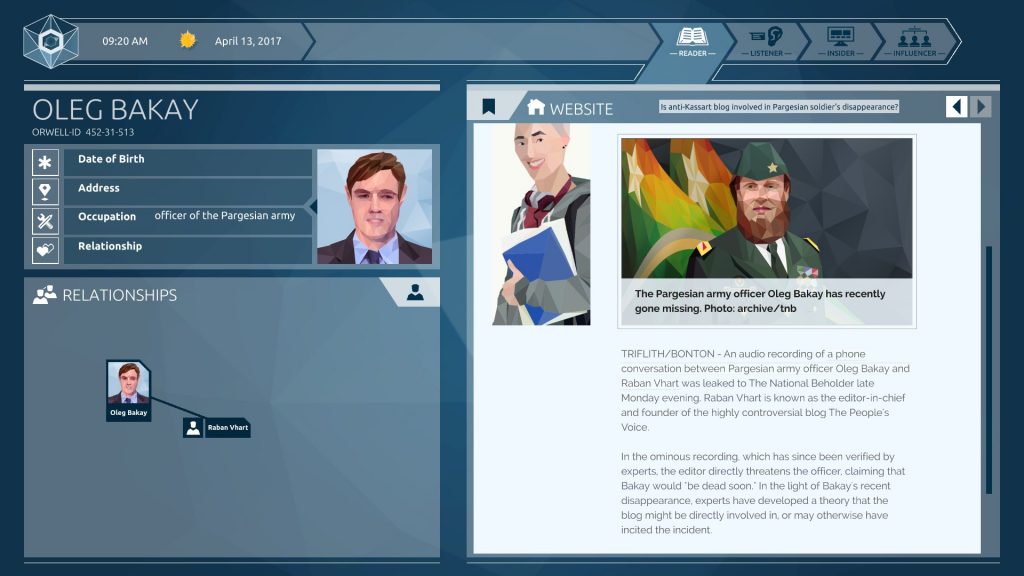In Orwell: Ignorance is Strength the player once again takes part as an Investigator in the “citizen surveillance” programme Orwell that has been initiated in The Nation and was explored in the earlier game (Orwell: Keeping an Eye on You). The fundamental idea of the programme is that an Investigator goes through vast amounts of information and select relevant data chunks to enter the system. An Advisor then works with the provided data chunks to make fundamental decisions, ensuring the safety of the Nation.
This time the starting point is a telephone conversation where Oleg Bakay, an army officer of the neighbouring country Pargas, is threatened by Raban Vhart, an activist and writer at the anti-government People’s Voice blog. Bakay disappears after the call, and the initial task for the player is to locate him using the information extracted through the tools that the Orwell system provides.
The gameplay and general feeling of the game is very similar to its predecessor. However, this time the player is able to use some experimental additional features of the Orwell system. In particular, now it is possible to the influencer functionality, which is a perfect tool to manipulate the views of the general public. This may seem a bit odd at first, but when thinking about the sacerity of The Nation, we must understand that the end always justifies the means.
In my view, the story in Orwell: Ignorance is Strength is not as strong as in the earlier game. In particular I think that the Advisor here, Ampleford, has a tendency to be much more manipulative than what I think is necessary for the investigation. An interesting aspect is that the story takes place at the same time as the story in the earlier game and is affected by how that one was played (if the computer finds the saves). This gives an additional depth to the background story, and the two game feels quite a lot like different chapters of the same book. That means that even though the game is well worth playing just as it is, it is a particularly good game as a follow-up to the previous one.
